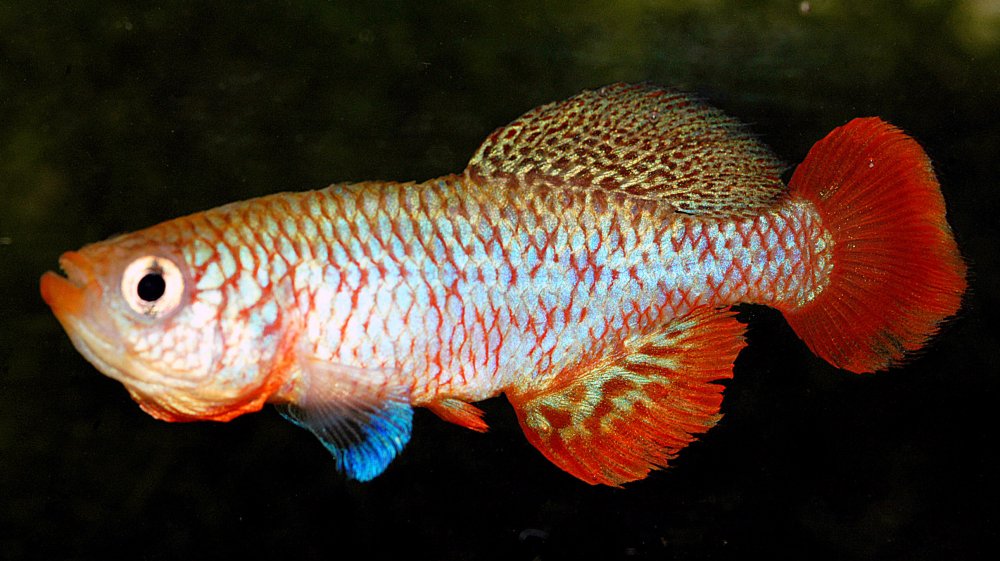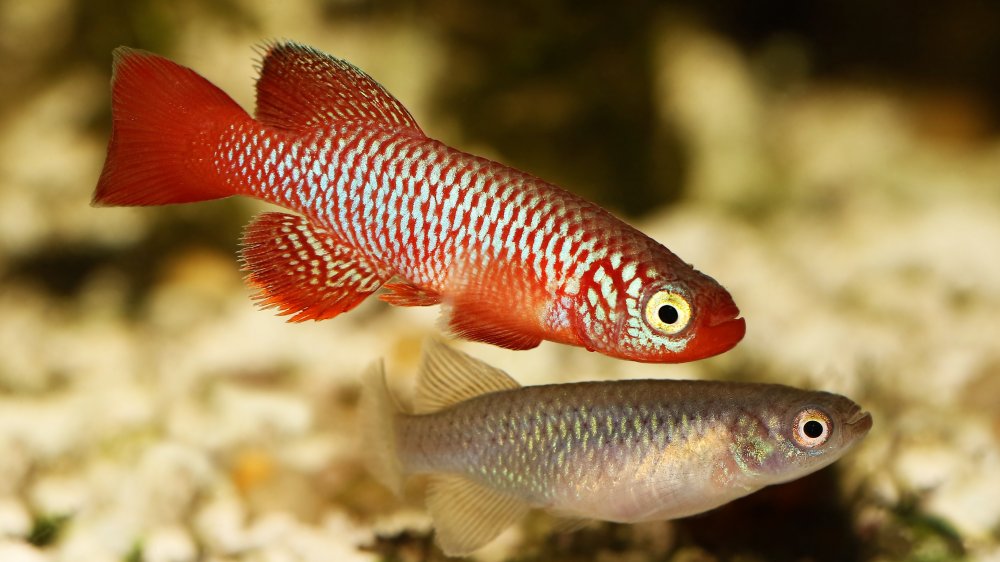African Killifish Could Hold Key To Stopping Human Aging
How about that mortality, right? Isn't the whole "aging until our bodies slowly waste away into death and subsequent decay" thing simply the best? No? That's fair. After all, it's probably safe to say that most people would like a way to achieve immortality or, failing that, to somehow stop the aging process before your home starts having that weird old people smell and you feel the unstoppable urge to complain about "those kids today."
Good news! Science has actually found a way to do just that. At some point down the line. If everything goes according to plan. Still, as the Guardian tells us, they're at least hopeful enough to talk about the concept of stopping human aging, thanks to a strange aquatic animal known as the turquoise killifish.
A fishy proposition
The strange thing about the African turquoise killifish is its ability to "put itself into suspended animation as an embryo." This strange ability is called diapause, and it's so strong that while an adult killifish only lives for four to six months, the embryo can survive in its diapause "stasis" for years.
Science thinks that the diapause trait evolved to enable the embryos to survive temporary changes in the environment that would otherwise be potentially lethal, such as droughts. However, new research has revealed another, even more interesting thing about the phenomenon: The diapause state does absolutely nothing to affect the fish's size, fertility or lifespan later down the line. According to Professor Anne Brunet of Stanford University, "Diapause is a fascinating state of 'suspended life' that can preserve a complex organism long-term, with no apparent tradeoff for subsequent life." And, it just so happens, her team believes it has recognized the protein responsible for the phenomenon, and thinks it might be possible to apply the diapause mechanism to adult tissues as well.
At this point, the potential to apply these new discoveries to humans is highly speculative, and other experts have pointed out that the findings of Brunet's team are far more likely to apply to organ regeneration (Also cool!) than the actual stopping of the aging process in humans. Still, at least killifish and their strange diapause antics are helping us to understand how to prevent the ravages of time from damaging organic matter. If nothing else, maybe someone will eventually use this research to invent longer-lasting sushi.

